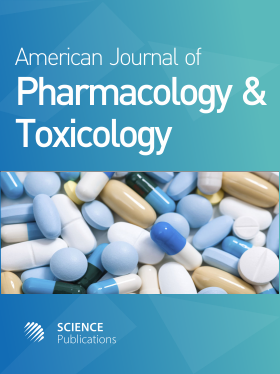Drug Interaction between Salinomycin and Exogenous Adrenaline in Dogs
- 1 Shiraz University, Iran
Abstract
Problem statement: Salinomycin is a member of ionophore compounds that may be used in ruminants and pigs as growth promoter or to prevent coccidiosis. There are some reports with respect to the in vitro and in vivo sympathomimetic cardiovascular effects of salinomycin. Available reports indicate that adrenergic impact of the ionophore is brought about by an increase in the secretion of endogenous catecholamines. In the present study, the hypothesis that salinomycin probably inhibits the biotransformation of catecholamines was examined. Approach: Ten female dogs weighing 22-29 kg were randomly divided into two equal groups. Two hours before general anesthesia, salinomycin with a dose of 1 mg kg-1 body weight was orally administered to the dogs in group II. Adrenaline (10 μg kg-1) was intravenously infused to all animals in both groups 30 min after anesthesia. Urine was collected via urinary catheter during the experiment at different time intervals (0-30, 30-90, 90-150 and 150-210 min). Urine volume at each stage was recorded and urine samples were assayed for vanilmandelic acid (VMA) using spectrophotometric method. Results: Dogs in group I excreted an average of 196 μg of VMA in urine compared to 81 μg in group II during first half an h, before intravenous infusion of adrenaline. The total amount of VMA excreted in urine during 30-90, 90-150 and 150-210 min after administration of adrenaline to dogs in group I were around 426, 430 and 437 μg, respectively. The corresponding values in group II were found to be 164, 161 and 273 μg, respectively. In summary, a significant (p<0.05) decrease in the urinary excretion of VMA was noticed in dogs pretreated with salinomycin. Conclusion/Recommendations: It was generally concluded that the adrenergic effect of salinomycin might be elicited by a decrease in catecholamine catabolism. Measurement of catecholamine concentrations (both parent and metabolites) in serum and determination of other catecholamine metabolites in urine and serum was recommended.
DOI: https://doi.org/10.3844/ajptsp.2009.17.21

- 4,336 Views
- 3,711 Downloads
- 1 Citations
Download
Keywords
- Adrenaline
- dogs
- drug interaction
- salinomycin
